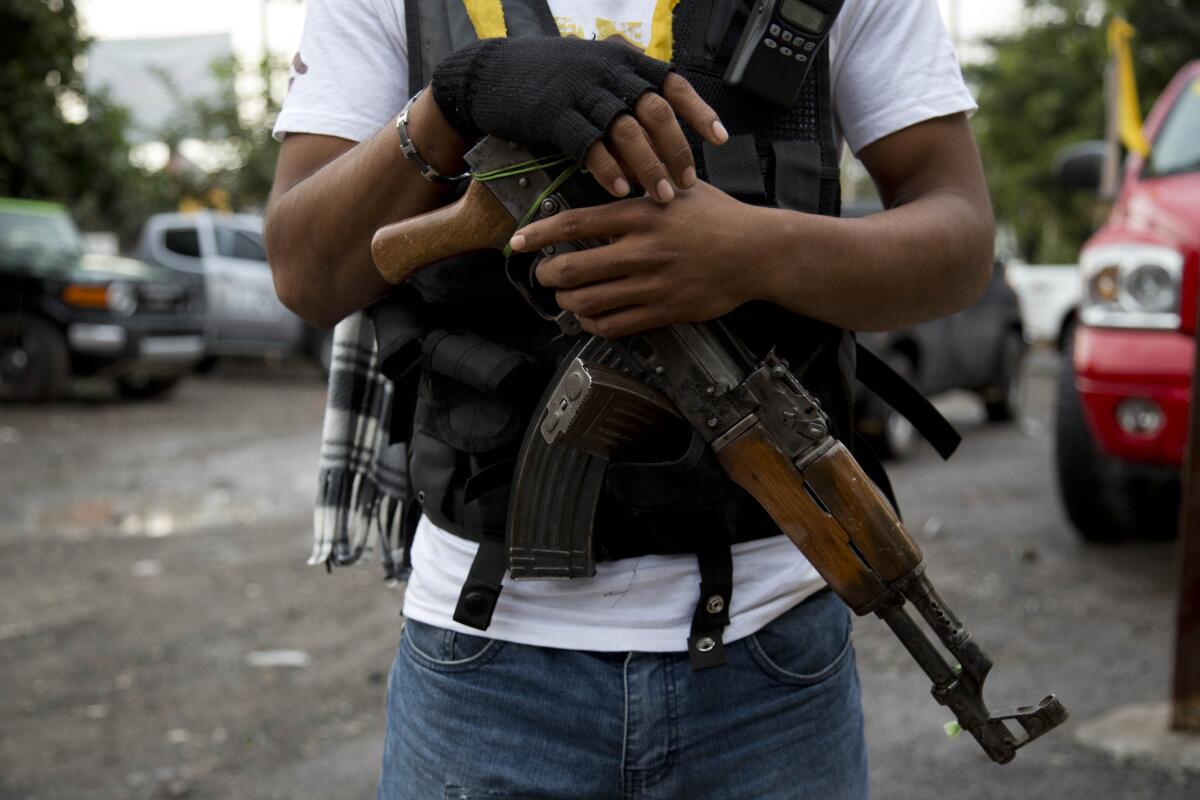Mexico to bring Michoacan’s ‘self-defense’ groups into existing force

- Share via
MEXICO CITY — The leaders of the vigilante “self-defense” groups of Michoacan state have signed an agreement with the Mexican government that transforms them into an officially sanctioned security force, officials announced Monday.
The self-defense groups sprang up last year to confront the Knights Templar drug cartel and moved aggressively this month into territory where the cartel held sway. In an effort to prevent a widespread conflagration, the Mexican government sent thousands of troops and federal police into the contested region, promising to finally go after cartel leaders and demanding that the self-defense forces disarm. But the vigilantes refused.
Now, the government has apparently decided to co-opt rather than confront the vigilantes.
The new agreement transforms them into elements of the Rural Defense Corps, an existing organization under the control of the military. Known as rurales, these groups of armed volunteers have roots in Mexico’s tumultuous 19th century history and have long been used to keep the peace in rural areas when more formal security forces were unavailable.
As part of the agreement, the vigilantes have promised to register their members and their weapons with the federal government.
The accord calls the arrangement a “temporary” one and states that those vigilantes who eventually wish to join municipal police forces will have to meet preexisting guidelines for becoming full-fledged officers.
A number of municipal police forces were disbanded or severely depleted of officers this month after the federal government forced hundreds of officers to take tests measuring their trustworthiness. Many residents suspect their local police of being henchmen for the drug cartel.
The federal government also announced Monday that it had arrested one of the top leaders of the Knights Templar, Dionisio Loya Plancarte, after finding him early Monday hiding in a closet in Morelia, the capital of Michoacan. The government had offered a $2.25-million reward for information leading to his capture.
Though some of the self-defense group members appear to be motivated by a sincere distaste for the Knights Templar’s lawlessness, there is widespread suspicion that at least some of them are linked to a rival drug cartel.
Twitter: @richardfausset
More to Read
Sign up for Essential California
The most important California stories and recommendations in your inbox every morning.
You may occasionally receive promotional content from the Los Angeles Times.










